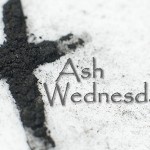So here’s the thing, the holy conundrum that we are caught up into.
Freedom is not free.
Yet freedom must always be a gift, a grace, from outside, from beyond.
The journey of God’s people throughout scripture and history can be understood as the struggle to live with this paradox.
Forty days, forty years, that number shows up repeatedly in our story, the story of God’s people.
A certain quality of time more than quantity, the quality of slow plodding struggle that just never seems to end.
How to become free? The gift and the cost. The grace and the discipline. The surrender and the struggle. It just goes on and on and on.
Today we begin a season of attending closely to that struggle to be set free from slavery to the powers of sin and death, to seek forgiveness and grace and mercy from beyond ourselves because we are helpless, hopeless and we just can’t help or control ourselves or our world.
Sin, both personal and cultural, both moral and societal, both individual and institutional.
For me, for several years now, my prayers for forgiveness have been prayers to be set free, “free me from this, from myself because I can’t help myself.”
The season of freedom.
The freedom that is a gift. The freedom that costs us everything.
Live in that place, that place of manna in the wilderness, of temptation, of being led by the Spirit, of angels assisting.
The disciplines of Lent: prayer, scripture, study, self-denial and costly generosity to the poor and the suffering.
They are about the struggle to be set free.
To turn away from that which enslaves and to turn toward the one who is freedom, who brings freedom, who judges all our slaveries, who calls us into a life of freedom.
So there it is.
The gift that costs us everything.
Be set free.


